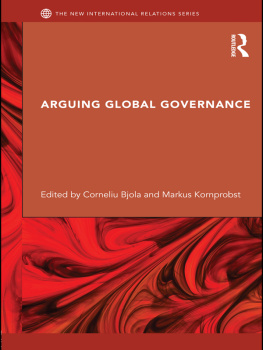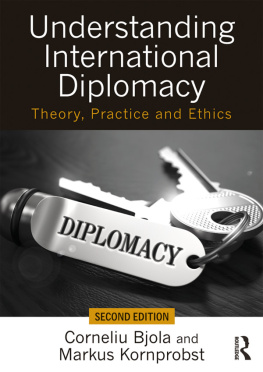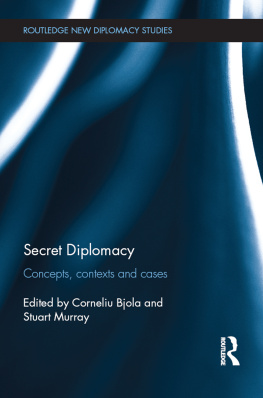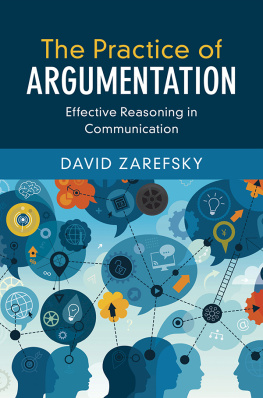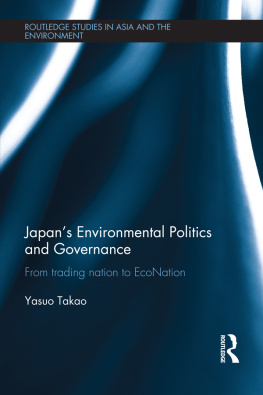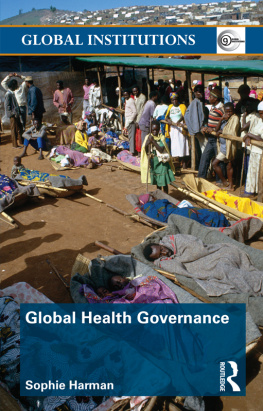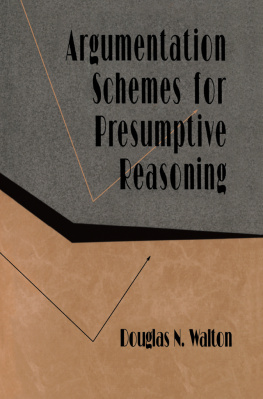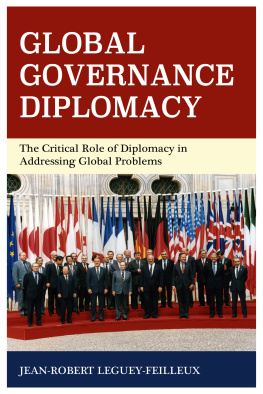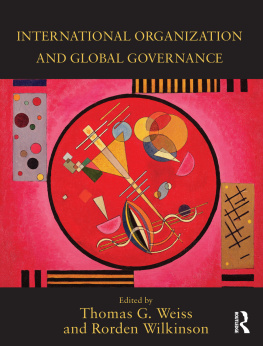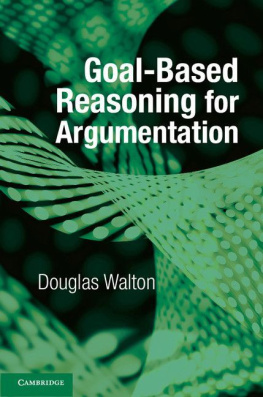An important theoretical contribution to the literature on global governance, with apposite contemporary applications. The editors and contributors synthesize Searles institutional philosophy with argumentation theory into a novel deontology to explain how the structure of global governance arrangements are in part constituted by processes of argumentation between actors. This is a major constructivist contribution to our understanding of the social mechanisms by which global governance mechanisms are constructed. Rodney Bruce Hall, University of Oxford
Though there is widespread agreement that many of the most pressing problems confronting the world require global solutions, there is far less agreement about the authority and ability of the agencies of global governance to provide them. The contributors to this innovative collection suggest that an answer lies in the power of argument to provide collectively binding common norms and goals that can transcend the myopia, self-interest and cultural misunderstandings that stand in the way of concerted action. A fruitful combination of theoretical and empirical enquiry, whereby a general framework is explored through a number of case studies, this collection offers a powerful and exemplary exploration of one of the most urgent challenges confronting international politics today. Richard Bellamy, University College London
Arguing Global Governance
This book deals with the questions of how global governance can and ought to effectively address serious global problems, such as financial instability, military conflicts, distributive injustice, and increasing concerns of ecological disasters.
Providing a unified theoretical framework, the contributors to this volume utilize argumentation research, broadening the concept by identifying the concerns about agency, lifeworld, and shared reasoning that different strands of argumentation research have in common. Furthermore, they develop the concept of argumentative deontology in order to make sense of the processes through which argumentation comes to shape global governance.
Empirically, the book demonstrates how ideas define actors interests, shape their interactions with each other, and ground intentions for collective action. Normatively, it provides an excellent theoretical platform for unveiling less visible manifestations of power in global politics and thereby improves our understandings of the ethical implications of global ordering.
Addressing topical issues such as conflict and intercivilizational dialogue, decision-making in international regimes and organizations, the World Social Forum, the Womens Environment and Development Organization, and Tobin Tax, this book will be of interest to students and scholars of argumentation theory, globalization, and global governance.
Corneliu Bjola is University Lecturer in Diplomatic Studies and a Fellow of St. Cross College at the University of Oxford.
Markus Kornprobst is Chair of International Relations at the Vienna School of International Studies, Diplomatische Akademie Wien.
The New International Relations
Edited by Richard Little, University of Bristol, Iver B. Neumann, Norwegian Institute of International Affairs (NUPI), Norway and Jutta Weldes, University of Bristol.
The field of international relations has changed dramatically in recent years. This new series will cover the major issues that have emerged and reflect the latest academic thinking in this particular dynamic area.
International Law, Rights and Politics
Developments in Eastern Europe and the CIS
Rein Mullerson
The Logic of Internationalism
Coercion and accommodation
Kjell Goldmann
Russia and the Idea of Europe
A study in identity and international relations
Iver B. Neumann
The Future of International Relations
Masters in the making?
Edited by Iver B. Neumann and Ole Wver
Constructing the World Polity
Essays on international institutionalization
John Gerard Ruggie
Realism in International Relations and International Political Economy
The continuing story of a death foretold
Stefano Guzzini
International Relations, Political Theory and the Problem of Order
Beyond international relations theory?
N.J. Rengger
War, Peace and World Orders in European History
Edited by Anja V. Hartmann and Beatrice Heuser
European Integration and National Identity
The challenge of the Nordic states
Edited by Lene Hansen and Ole Wver
Shadow Globalization, Ethnic Conflicts and New Wars
A political economy of intra-state war
Dietrich Jung
Contemporary Security Analysis and Copenhagen Peace Research
Edited by Stefano Guzzini and Dietrich Jung
Observing International Relations
Niklas Luhmann and world politics
Edited by Mathias Albert and Lena Hilkermeier
Does China Matter? A Reassessment
Essays in memory of Gerald Segal
Edited by Barry Buzan and Rosemary Foot
European Approaches to International Relations Theory
A house with many mansions
Jrg Friedrichs
The Post-Cold War International System
Strategies, institutions and reflexivity
Ewan Harrison
States of Political Discourse
Words, regimes, seditions
Costas M. Constantinou
The Politics of Regional Identity
Meddling with the Mediterranean
Michelle Pace
The Power of International Theory
Reforging the link to foreign policy-making through scientific enquiry
Fred Chernoff
Africa and the North
Between globalization and marginalization
Edited by Ulf Engel and Gorm Rye Olsen
Communitarian International Relations
The epistemic foundations of international relations
Emanuel Adler
Human Rights and World Trade
Hunger in international society
Ana Gonzalez-Pelaez
Liberalism and War
The victors and the vanquished
Andrew Williams
Constructivism and International Relations
Alexander Wendt and his critics
Edited by Stefano Guzzini and Anna Leander
Security as Practice
Discourse analysis and the Bosnian War
Lene Hansen
The Politics of Insecurity
Fear, migration and asylum in the EU
Jef Huysmans
State Sovereignty and Intervention
A discourse analysis of interventionary and non-interventionary practices in Kosovo and Algeria

